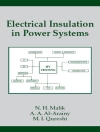This Brief identifies various aspects of energy challenges faced by the Chinese central/local governments, and also provides an opportunity to study how best to achieve green growth and a low-carbon transition in a developing country like China. The progress of China’s carbon mitigation policies also has significant impacts on the on-going international climate change negotiations. Therefore, both policy- makers and decision-makers in China and other countries can benefit from studying the challenges and opportunities in China’s energy development.
Inhoudsopgave
Energy Efficiency and Conservation Strategies in Vehicles and Transport Systems in China.- Energy Efficiency and Conservation in China’s Power Sector: Opportunities and Challenges.- Energy Efficiency and Conservation Strategies in Household: Findings from a Survey.- Efficiency Improvement in China’s Energy Intensive Industries and Its Contribution to Carbon Emission Reduction Target.- Building Life-cycle Commissioning and Optimization – Approach and Practice.- The Legal Challenges about the Legislation and Policies on Energy Conservation and Energy Efficiency in China.- Potential of CO2 Abatement Resulting from Energy Efficiency Improvement in China’s Iron and Steel Industry.- Efficiency in China’s Power Sector: Evidence from Large Dataset of Power Plants.- Household Energy Saving in China: The Challenges of Changing Behaviour.- Energy Efficiency and Conservation Strategies in Japan and Their Implications in China’s Future Energy Development.- Prospects of Energy Savings and GHG Emission Reductions.- Energy and Pollution Efficiencies of Regions in China.
Over de auteur
Dr. Su Bin joined the Energy Studies Institute in September 2011 after finishing his Ph D in the Department of Industrial and Systems Engineering at the National University of Singapore. He received his Master’s degree in Probability Theory and Mathematical Statistics from the Academy of Mathematics and Systems Science at the Chinese Academy of Sciences in 2007. He also has two Bachelor degrees: a BSc in Statistics and BEng in Electronic Information Engineering, both from the University of Science and Technology of China in 2004. His main research interest is energy and environmental systems modeling and analysis, with particular emphasis on energy efficiency, embodied energy/emissions, carbon footprint and carbon pricing. Dr. Su is presently Associate Editor of Energy Economics (ISSN: 0140-9883), and referee for around 30 international peer-reviewed journals.
Dr Elspeth Thomson received her Ph D from the School of Oriental and African Studies, University of London. Her research interests span Asian energy security, energy economics and energy and the environment. Besides her book tracing the history of China’s coal industry, and several edited collections, she has published numerous articles and book chapters on many aspects of the various types of energy consumed and traded in Southeast, North and South Asia. Through the 1990s she taught at Simon Fraser University in Vancouver and Lingnan University in Hong Kong. From 2001-2007, she was a Research Fellow at the East Asian Institute at NUS where she was a China energy specialist.












